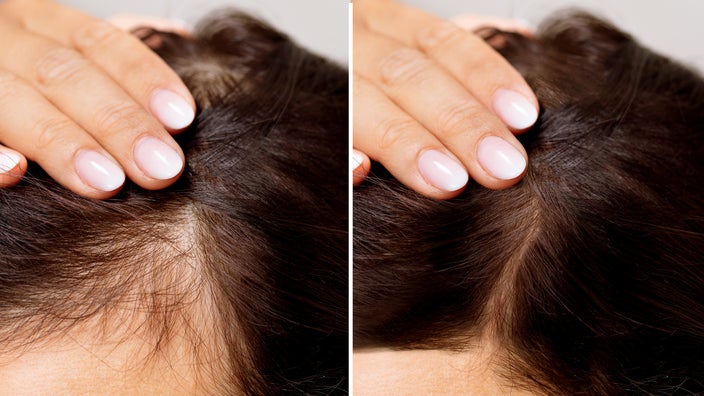5 Lifestyle Changes To Improve Hair Loss

Hair loss, a multifaceted dilemma, can be attributed to an array of factors, encompassing genetic predispositions, hormonal fluctuations, and the natural progression of aging. While consulting a medical professional is paramount for an accurate diagnosis and tailored treatment plan, individuals can implement various lifestyle modifications to bolster hair health during this interim period.
Gentle Hair Handling
The manner in which one interacts with their hair during grooming and styling can significantly influence its integrity. It is advisable to:
Employ a gentle approach when brushing or combing, minimizing excessive tugging that can exacerbate hair loss. Utilizing a wide-toothed comb may aid in reducing unnecessary strain.
Detangle hair starting from the tips, progressively working towards the roots to prevent breakage.
Avoid hairstyles that impose tension on the hair follicles, such as tight braids or ponytails, as these can contribute to traction alopecia. Opting for looser styles can mitigate this risk.
Nutritional Considerations
A well-balanced diet rich in essential nutrients plays a pivotal role in maintaining hair vitality. Key dietary recommendations include:
Protein Intake: Hair follicles are predominantly composed of protein; thus, ensuring adequate protein consumption is crucial for hair strength and growth.
Vitamins and Minerals: Incorporating vitamins such as B12, D, and E, along with minerals like iron and zinc, supports overall hair health. These nutrients can be obtained through a balanced diet or supplementation, as advised by a healthcare provider.
Omega-3 Fatty Acids: Found in fatty fish, these essential fats have anti-inflammatory properties that may protect hair follicles and promote scalp health.
Minimizing Chemical and Thermal Exposure
Exposure to harsh chemicals and excessive heat can compromise hair integrity. To mitigate damage:
Limit the use of chemical treatments such as perms, relaxers, and hair dyes, especially those containing ammonia and peroxide.
Reduce the frequency of heat styling practices, including blow-drying, curling, and straightening. Allowing hair to air-dry and using heat-protectant products when styling can preserve hair health.
Stress Management
Chronic stress can disrupt the hair growth cycle, leading to increased shedding. Implementing stress-reduction techniques is beneficial:
Engage in regular physical activity, which can alleviate stress and improve overall well-being.
Practice mindfulness exercises such as meditation, yoga, or deep-breathing techniques to manage stress levels effectively.
Scalp Care
Maintaining a healthy scalp environment is fundamental for optimal hair growth:
Keep the scalp clean to prevent sebum buildup, which can clog hair follicles and impede growth.
Consider gentle scalp massages to stimulate blood circulation, which may enhance nutrient delivery to hair follicles.
Try Xiangxiang Daily Now!
We Help You Launch New Products, And Continue To Grow. Try Us With 20% Off Your First Order!
Conclusion
While hair loss can present a challenging experience, adopting gentle hair care practices, ensuring proper nutrition, minimizing exposure to damaging agents, managing stress, and maintaining scalp health can collectively contribute to the preservation of hair vitality. It is essential to consult with a healthcare professional for personalized advice and to address any underlying medical conditions contributing to hair loss.
Table of Contents
Latest Blog Posts
Check out the latest industry trends and take inspiration from our updated blogs, giving you a fresh insight to help boost your business.



